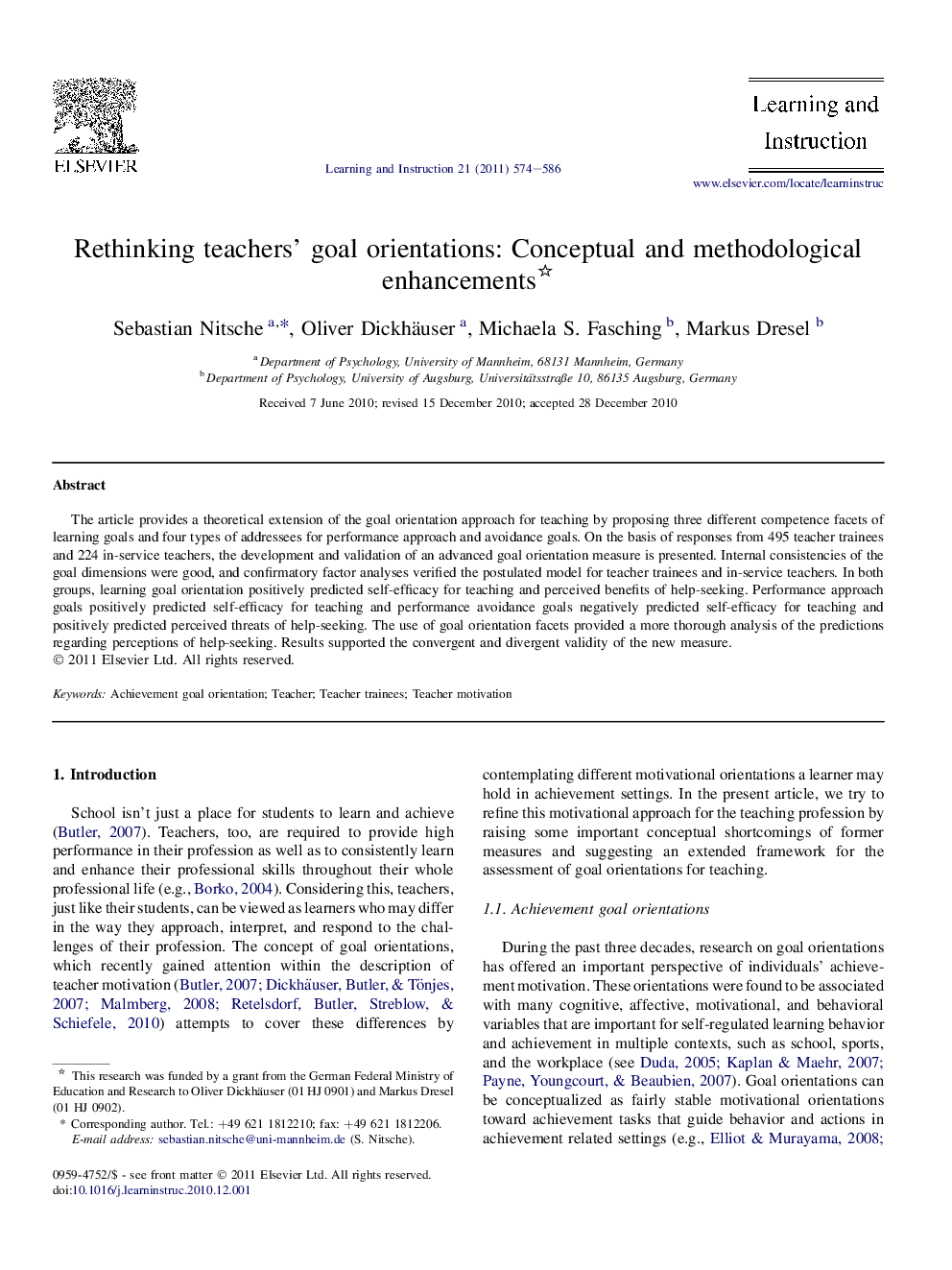| Article ID | Journal | Published Year | Pages | File Type |
|---|---|---|---|---|
| 365687 | Learning and Instruction | 2011 | 13 Pages |
The article provides a theoretical extension of the goal orientation approach for teaching by proposing three different competence facets of learning goals and four types of addressees for performance approach and avoidance goals. On the basis of responses from 495 teacher trainees and 224 in-service teachers, the development and validation of an advanced goal orientation measure is presented. Internal consistencies of the goal dimensions were good, and confirmatory factor analyses verified the postulated model for teacher trainees and in-service teachers. In both groups, learning goal orientation positively predicted self-efficacy for teaching and perceived benefits of help-seeking. Performance approach goals positively predicted self-efficacy for teaching and performance avoidance goals negatively predicted self-efficacy for teaching and positively predicted perceived threats of help-seeking. The use of goal orientation facets provided a more thorough analysis of the predictions regarding perceptions of help-seeking. Results supported the convergent and divergent validity of the new measure.
► An extended goal orientation approach for teaching is proposed. ► The proposed model could be verified for teacher trainees and in-service teachers. ► Self-efficacy and help-seeking can be differentially predicted by goal orientations.
